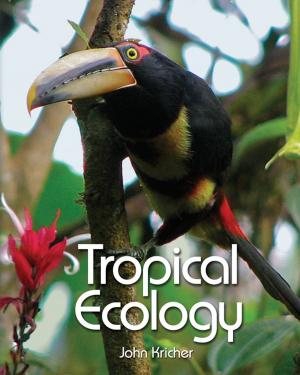| Author: | Hugh Raffles | ISBN: | 9781400865277 |
| Publisher: | Princeton University Press | Publication: | September 15, 2014 |
| Imprint: | Princeton University Press | Language: | English |
| Author: | Hugh Raffles |
| ISBN: | 9781400865277 |
| Publisher: | Princeton University Press |
| Publication: | September 15, 2014 |
| Imprint: | Princeton University Press |
| Language: | English |
The Amazon is not what it seems. As Hugh Raffles shows us in this captivating and innovative book, the world's last great wilderness has been transformed again and again by human activity. In Amazonia brings to life an Amazon whose allure and reality lie as much, or more, in what people have made of it as in what nature has wrought. It casts new light on centuries of encounter while describing the dramatic remaking of a sweeping landscape by residents of one small community in the Brazilian Amazon. Combining richly textured ethnographic research and lively historical analysis, Raffles weaves a fascinating story that changes our understanding of this region and challenges us to rethink what we mean by "nature."
Raffles draws from a wide range of material to demonstrate--in contrast to the tendency to downplay human agency in the Amazon--that the region is an outcome of the intimately intertwined histories of humans and nonhumans. He moves between a detailed narrative that analyzes the production of scientific knowledge about Amazonia over the centuries and an absorbing account of the extraordinary transformations to the fluvial landscape carried out over the past forty years by the inhabitants of Igarapé Guariba, four hours downstream from the nearest city.
Engagingly written, theoretically inventive, and vividly illustrated, the book introduces a diverse range of characters--from sixteenth-century explorers and their native rivals to nineteenth-century naturalists and contemporary ecologists, logging company executives, and river-traders. A natural history of a different kind, In Amazonia shows how humans, animals, rivers, and forests all participate in the making of a region that remains today at the center of debates in environmental politics.
The Amazon is not what it seems. As Hugh Raffles shows us in this captivating and innovative book, the world's last great wilderness has been transformed again and again by human activity. In Amazonia brings to life an Amazon whose allure and reality lie as much, or more, in what people have made of it as in what nature has wrought. It casts new light on centuries of encounter while describing the dramatic remaking of a sweeping landscape by residents of one small community in the Brazilian Amazon. Combining richly textured ethnographic research and lively historical analysis, Raffles weaves a fascinating story that changes our understanding of this region and challenges us to rethink what we mean by "nature."
Raffles draws from a wide range of material to demonstrate--in contrast to the tendency to downplay human agency in the Amazon--that the region is an outcome of the intimately intertwined histories of humans and nonhumans. He moves between a detailed narrative that analyzes the production of scientific knowledge about Amazonia over the centuries and an absorbing account of the extraordinary transformations to the fluvial landscape carried out over the past forty years by the inhabitants of Igarapé Guariba, four hours downstream from the nearest city.
Engagingly written, theoretically inventive, and vividly illustrated, the book introduces a diverse range of characters--from sixteenth-century explorers and their native rivals to nineteenth-century naturalists and contemporary ecologists, logging company executives, and river-traders. A natural history of a different kind, In Amazonia shows how humans, animals, rivers, and forests all participate in the making of a region that remains today at the center of debates in environmental politics.















